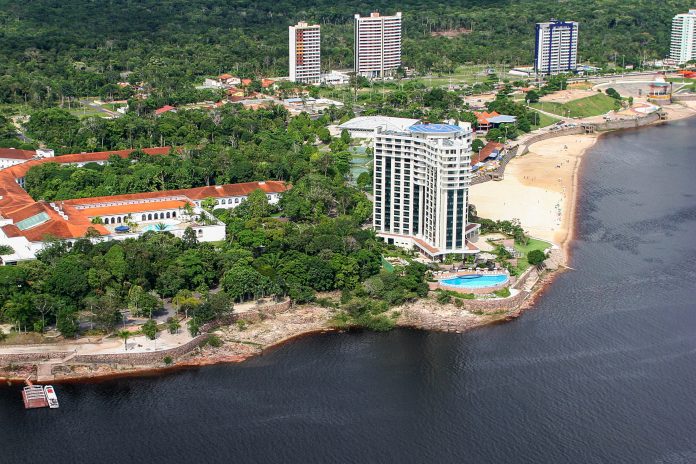Manaus ist das Tor zum brasilianischen Regenwald und hat prächtige Kolonialbauten aus einer glorreichen Vergangenheit zu bieten.
Wer die wilde Schönheit des ursprünglichen Amazonas erleben möchte, startet mit ziemlicher Sicherheit in Manaus, Hauptstadt des Bundesstaates Amazonas. Das Eingangstor zum brasilianischen Regenwald liegt logischerweise mitten im Dschungel und ist am besten per Boot oder mit dem Flugzeug zu erreichen.
Die von tropischer Hitze geplagte Hauptstadt hat jedoch nicht nur Regenwald, sondern auch einige prächtige Bauten ihrer glorreichen Vergangenheit zu bieten. Bis zum frühen 20. Jahrhundert verhalf der Kautschuk-Boom der Region um Manaus zu Reichtum und Wohlstand. Die kolonialen Vermächtnisse sind jedoch leider zum Großteil dem Verfall preisgegeben, oftmals fehlen für die dringend nötige Renovierung die Mittel.
Dennoch zahlt sich ein Stadtrundgang durch Manaus aus, bevor es weiter in die abenteuerlichen Tiefen des tropischen Dschungels geht.
Inhaltsverzeichnis
Teatro Amazonas
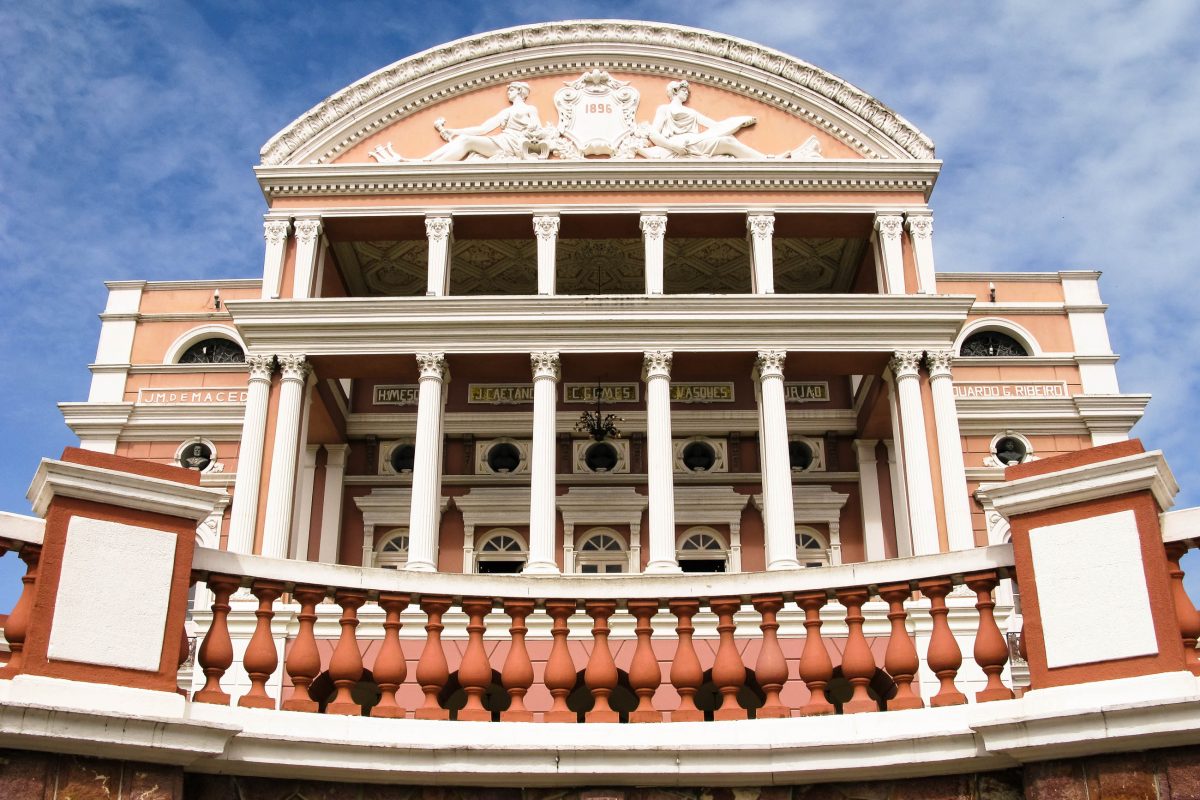
Das Teatro Amazonas ist das wohl bekannteste Bauwerk von Manaus. Es wurde 1896 eröffnet und seitdem immer wieder restauriert, um seinen alten Glanz zu bewahren. So imponiert es nach wie vor mit seiner säulenbewährten Fassade und der farbenprächtig strahlenden Kuppel.
Von Montag bis Samstag finden im Teatro Amazonas Führungen statt. Am besten besichtigt man das Amazonas-Theater aber natürlich im Zuge einer Vorstellung. Neben Bühnenstücken werden hier auch Opern aufgeführt.
Artikel: Teatro Amazonas in Manaus
Igreja São Sebastião
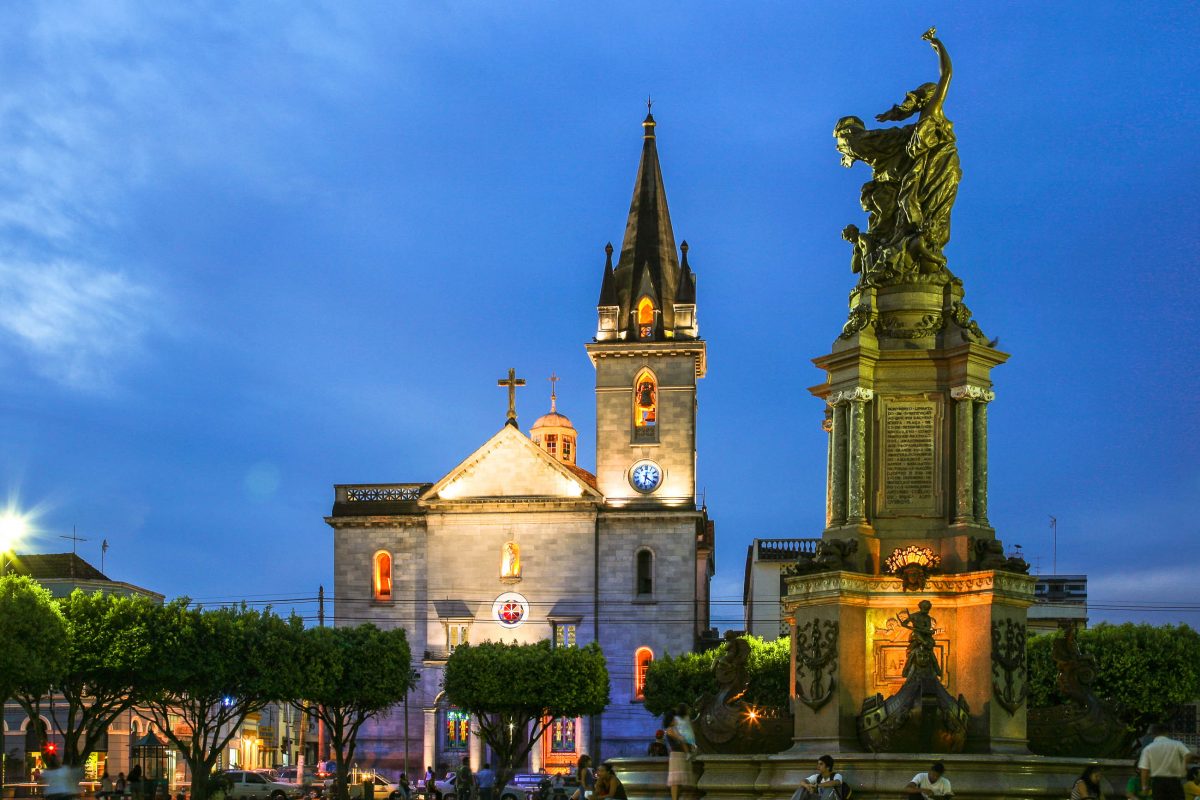
Die Igreja São Sebastião liegt am gleichnamigen Platz gleich gegenüber vom Teatro Amazonas. Sie beeindruckt mit prächtigen Malereien und einer lebensgroßen Krippe. Viele Gemälde in ihrem Inneren wurden in Italien gefertigt und anschließend nach Manaus transportiert. Auch die Krippe mit lebensgroßen Figuren wurde aus Europa nach Brasilien gebracht.
Artikel: Igreja São Sebastião in Manaus
Catedral Metropolitana
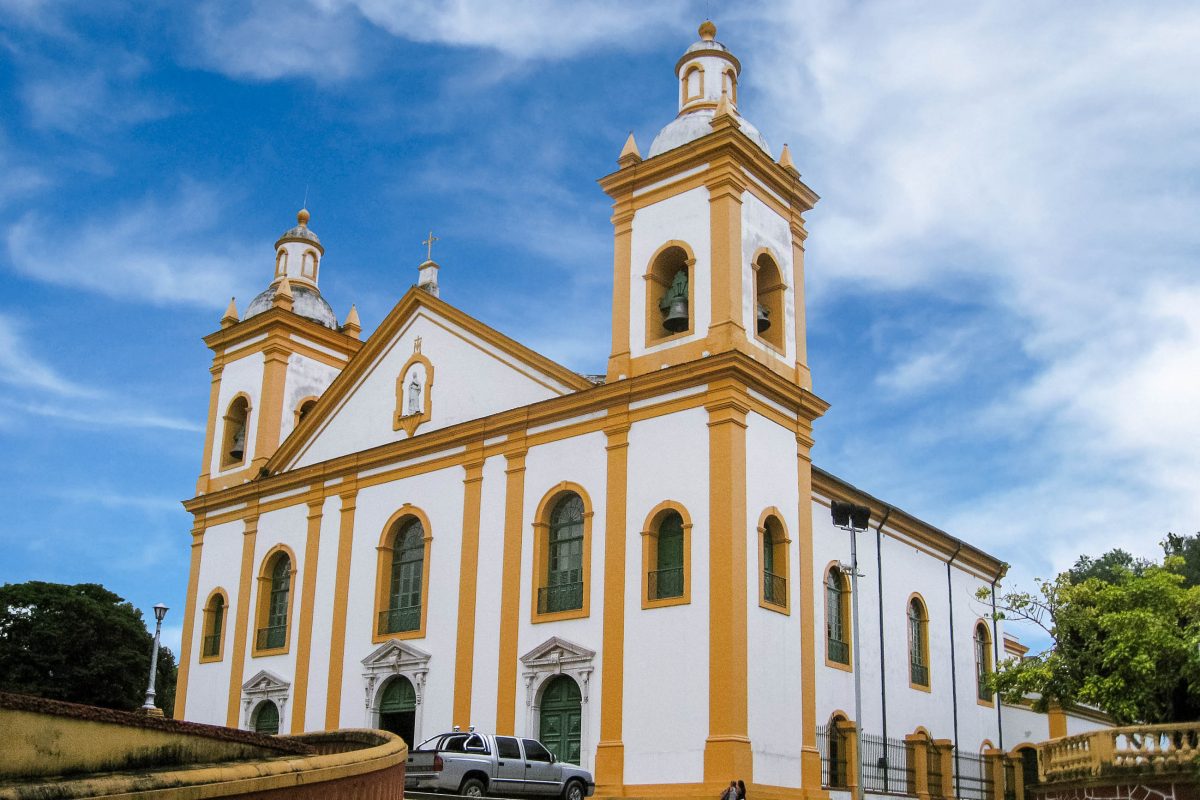
Die wichtigste Kirche der Stadt ist jedoch nicht die Igreja São Sebastião, sondern die Catedral Metropolitana. Die städtische Kathedrale von Manaus liegt im Hafen der Stadt auf einem kleinen Hügel mit traumhaftem Blick auf den Rio Negro.
Sie wurde direkt nach der Gründung von Manaus als erste Kirche der Stadt errichtet. Ihr Vorgänger-Bau stammt aus dem Jahr 1695, damals unterhielt hier der Karmeliter-Orden eine Mission.
Artikel: Catredal Metropolitana in Manaus
Palácio Rio Negro
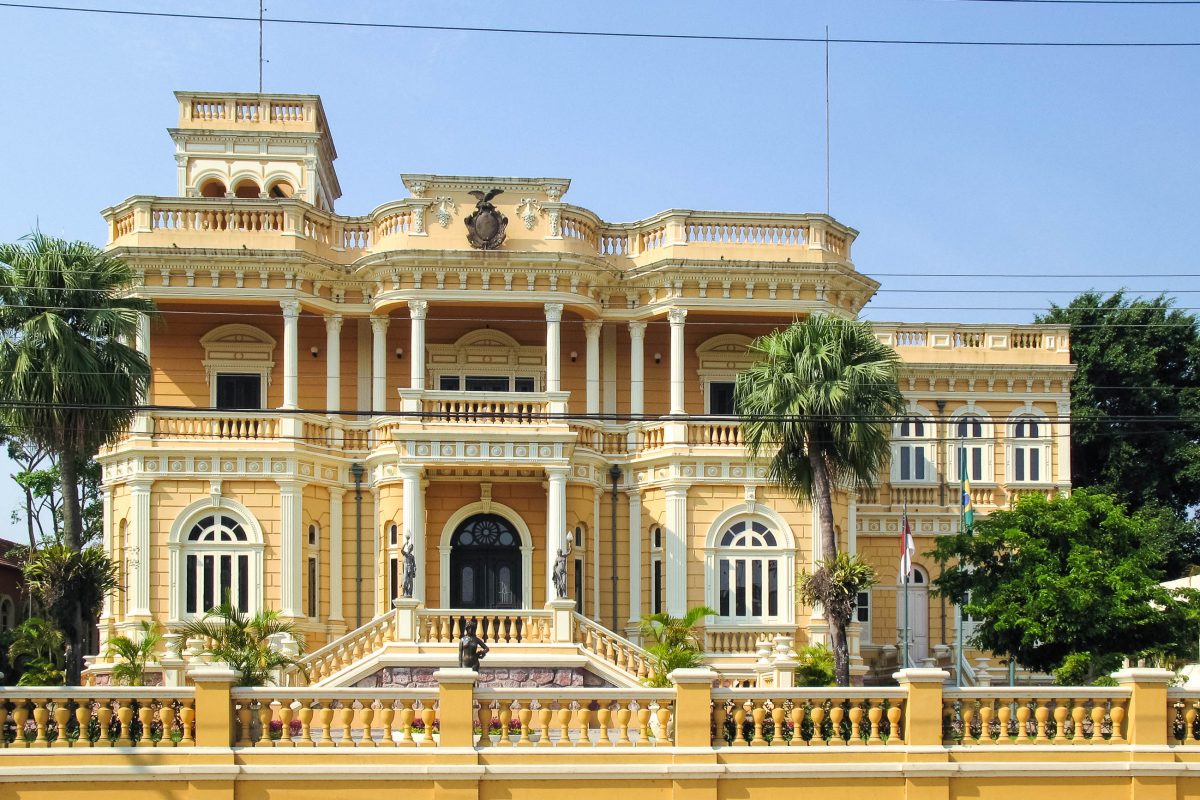
Der Palácio Rio Negro ist das einzige vollständig erhaltene Bauwerk aus der Zeit des Kautschuk-Booms. Es wurde 1903 von einem deutschen Kaufmann errichtet und war fast ein Jahrhundert Sitzt des Gouverneurs von Manaus.
Heute heißt der Palácio Rio Negro als Museum und Kulturzentrum Touristen willkommen. Es präsentiert Ausstellungen über das Amazonas-Gebiet, darunter einer der umfangreichsten Münzsammlungen der Südhalbkugel. In seinen Räumlichkeiten aus weißem Marmor und dunklem Holz bietet der historische Palast auch für Konzerte, Theaterstücke und Lesungen ein ein edles Ambiente.
Artikel: Palácio Rio Negro in Manaus
Mercado Municipal Adolpho Lisboa
Der Mercado Municipal von Manaus geht ebenfalls auf die Kautschuk-Zeit zurück. Die Jugendstil-Markthalle mit den Buntglasfenstern liegt direkt am Ufer des Rio Negro. Sie wurde von Gustave Eiffel erbaut, der auch den Eiffelturm in Paris errichtet hatte, und 1883 eröffnet.
Der gusseiserne Bau sieht deshalb von außen europäisch aus, sein Inneres stammt aber zweifellos aus dem brasilianischen Regenwald. Zwischen tropischen Früchten und fangfrischem Fisch gibt es hier Lederwaren, brasilianische Handwerkskunst und traditionelle Heilmittel aus dem Amazonas zu erstehen.
Praia Ponta Negra

Bade-Urlaub in Brasilien muss nicht immer am Meer sein: Der idyllische Praia Ponta Negra liegt am Flussufer des Rio Negro und gehört zu unseren 10 schönsten Stränden Brasiliens. Tagsüber lockt er Strandurlauber zu einem erfrischenden Sprung in die dunklen Fluten, nach Sonnenuntergang ist er für sein ausgelassenes Nachtleben bekannt.
Artikel: Praia Ponta Negra in Manaus
Encontro das Águas im Amazonas Regenwald um Manaus
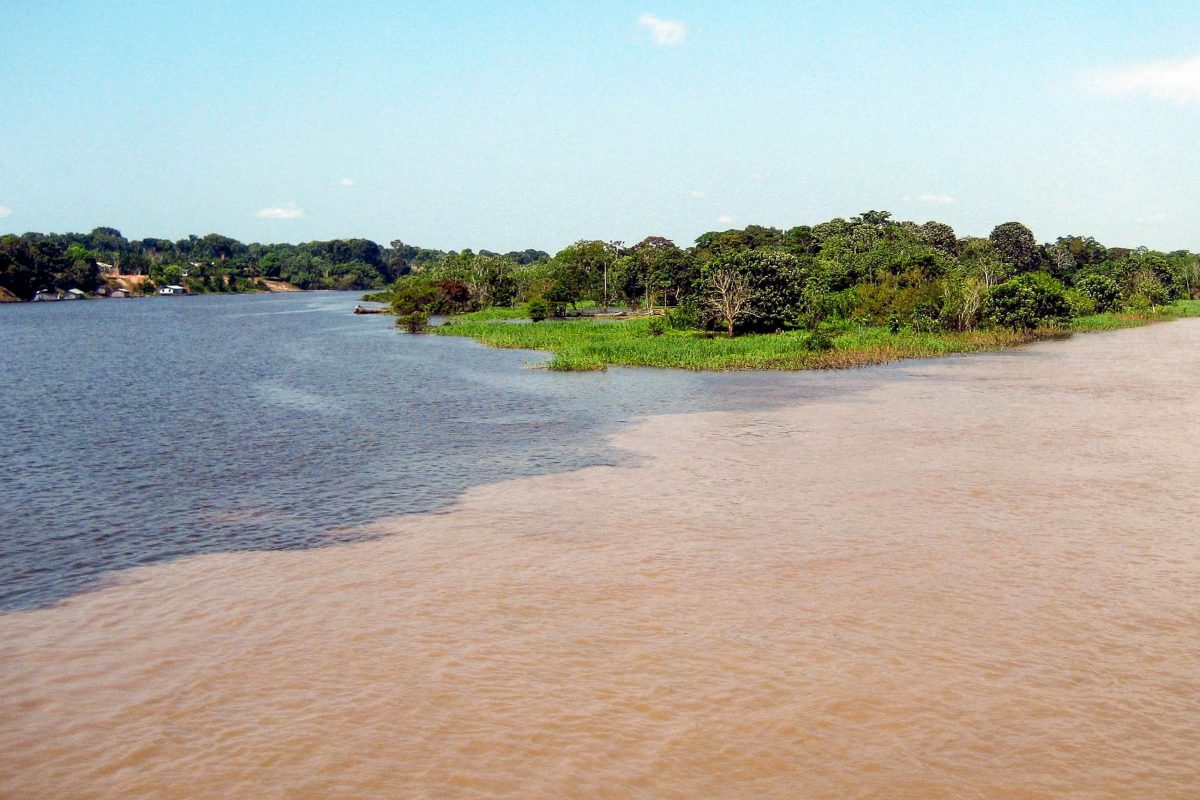
Die meisten Brasilien-Urlauber kommen nach Manaus, um den brasilianischen Dschungel kennenlernen. Der Rio Negro dient dabei oft als Verkehrsmittel erster Wahl, um den faszinierenden Artenreichtum des Amazonas-Regenwaldes zu erkunden.
Ein weiteres Highlight am Rio Negro ist das Encontro das Águas (Treffen der Wasser). Rund 10 Kilometer von Manaus entfernt trifft das schwarze Wasser des Rio Negro auf die schlammbraunen Fluten des Rio Sõlimoes. Die Grenze zwischen den beiden Flüssen ist auf einer Länge von rund 6 Kilometern deutlich zu erkennen.
Artikel: Amazonas-Regenwald im Manaus
Botanischer Garten Manaus (MUSA – Museu da Amazonia)
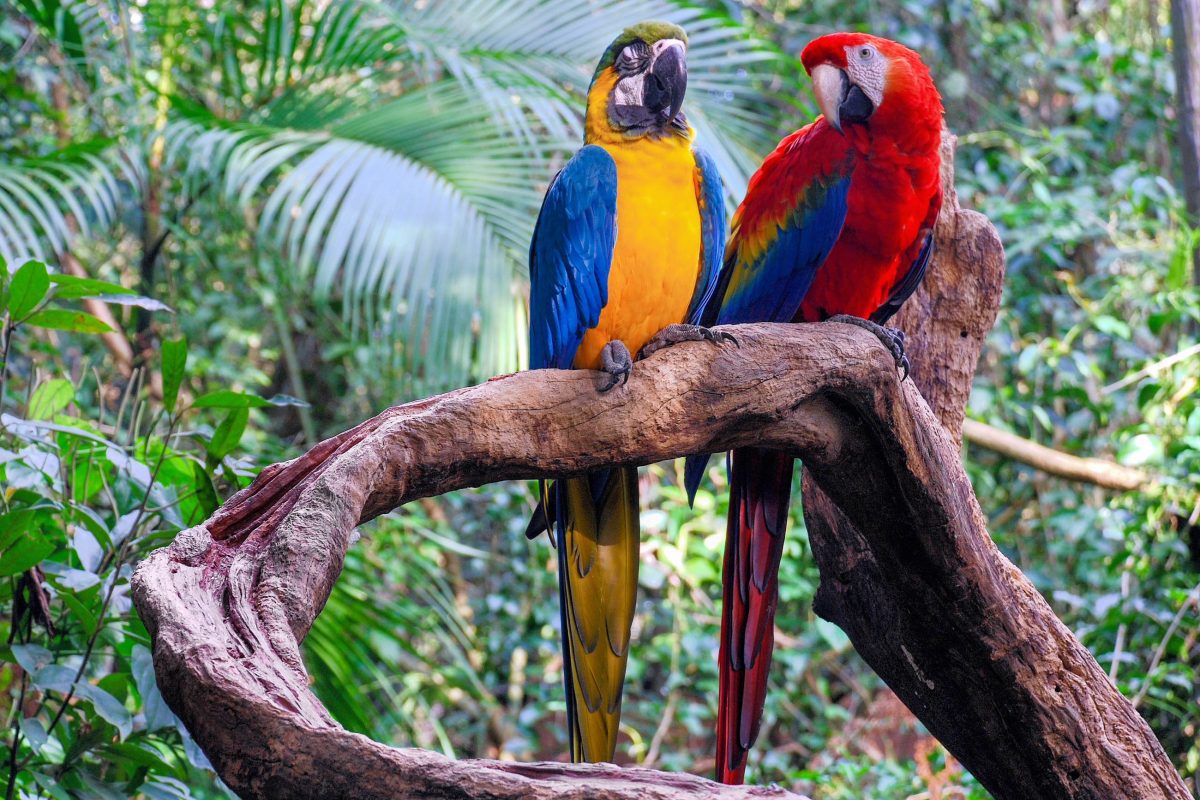
Wer nicht unbedingt durch die Tiefen des Regenwaldes streifen, den Amazonas aber dennoch erkunden möchte, ist im Museu da Amazonia richtig. Dieser botanische Garten liegt mitten im Adolpho Ducke Forest Reserve.
Auf seiner Fläche von knapp 500 Hektar führen zahlreiche Wanderwege durch die üppige Pflanzenwelt des brasilianischen Dschungels. Vom 42 Meter hohen MUSA-Turm fällt der Blick über das dichte Blätterdach des Amazonas, unter dem sich unzählige Vögel, Affen, Schmetterlinge und weitere Tiere tummeln.
Ponte Rio Negro (Manaus-Iranduba-Brücke)
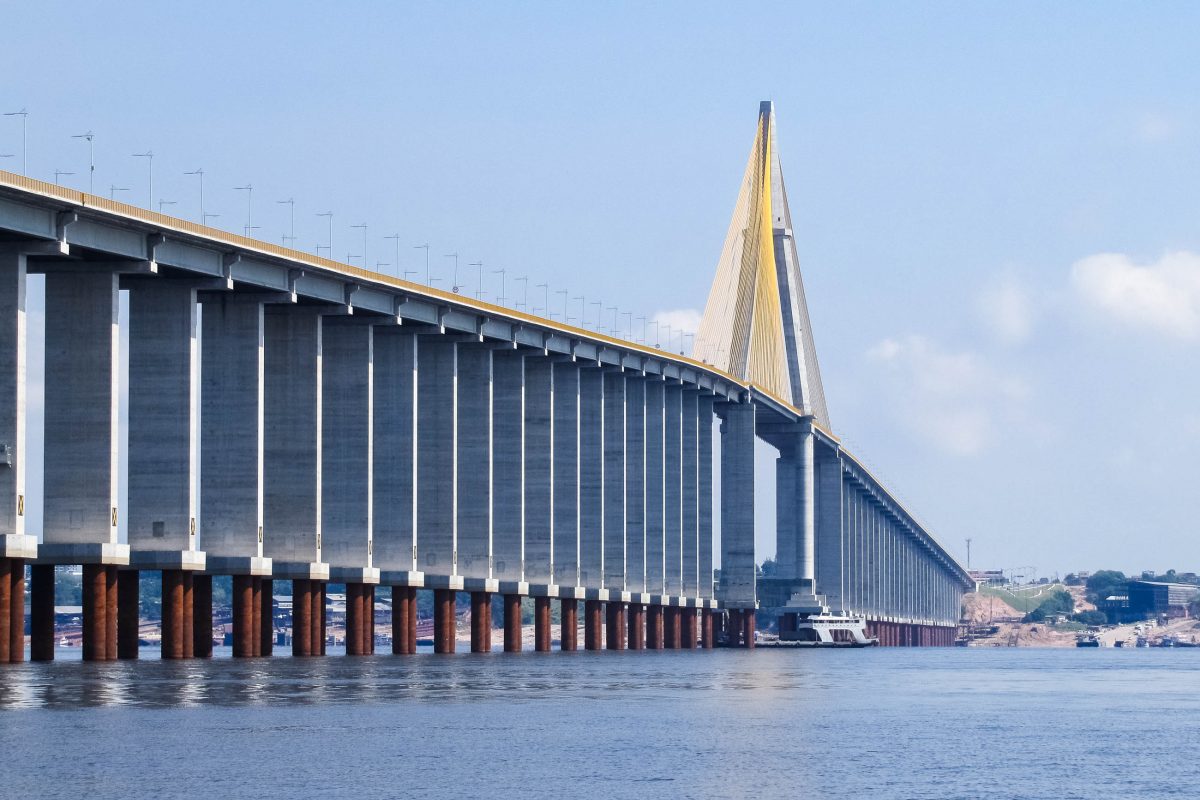
In Manaus ist eine der größten Brücken Brasiliens zu finden. Die 3 Kilometer lange Ponte Rio Negro verbindet bei Manaus und Iranduba die beiden Flussufer des Rio Negro. Auf Kosten pro Meter bezogen war diese architektonische Meisterleistung die teuerste Brücke ganz Brasiliens.
Artikel: Ponte Rio Negro (Manaus-Iranduba-Brücke) in Manaus
Arena da Amazônia
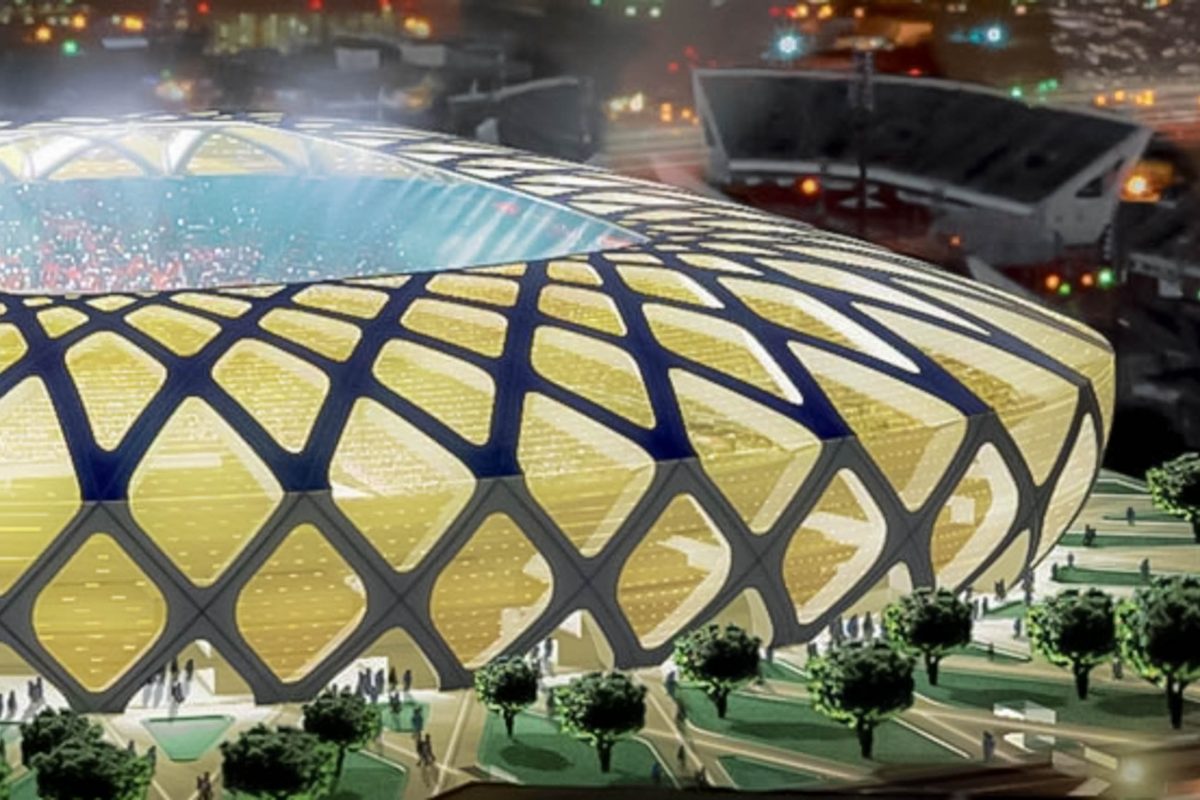
Ebenfalls eine architektonische Meisterleistung im Regenwald um Manaus ist die Arena da Amazônia. Obwohl heftig kritisiert wurde mitten im Dschungel dieses gigantische Stadion für die Fußball WM 2014 errichtet. Der Bau ist an das Aussehen eines für die Region typischen Strohkorbs angelehnt und verschlang rund 200 Millionen Euro.

